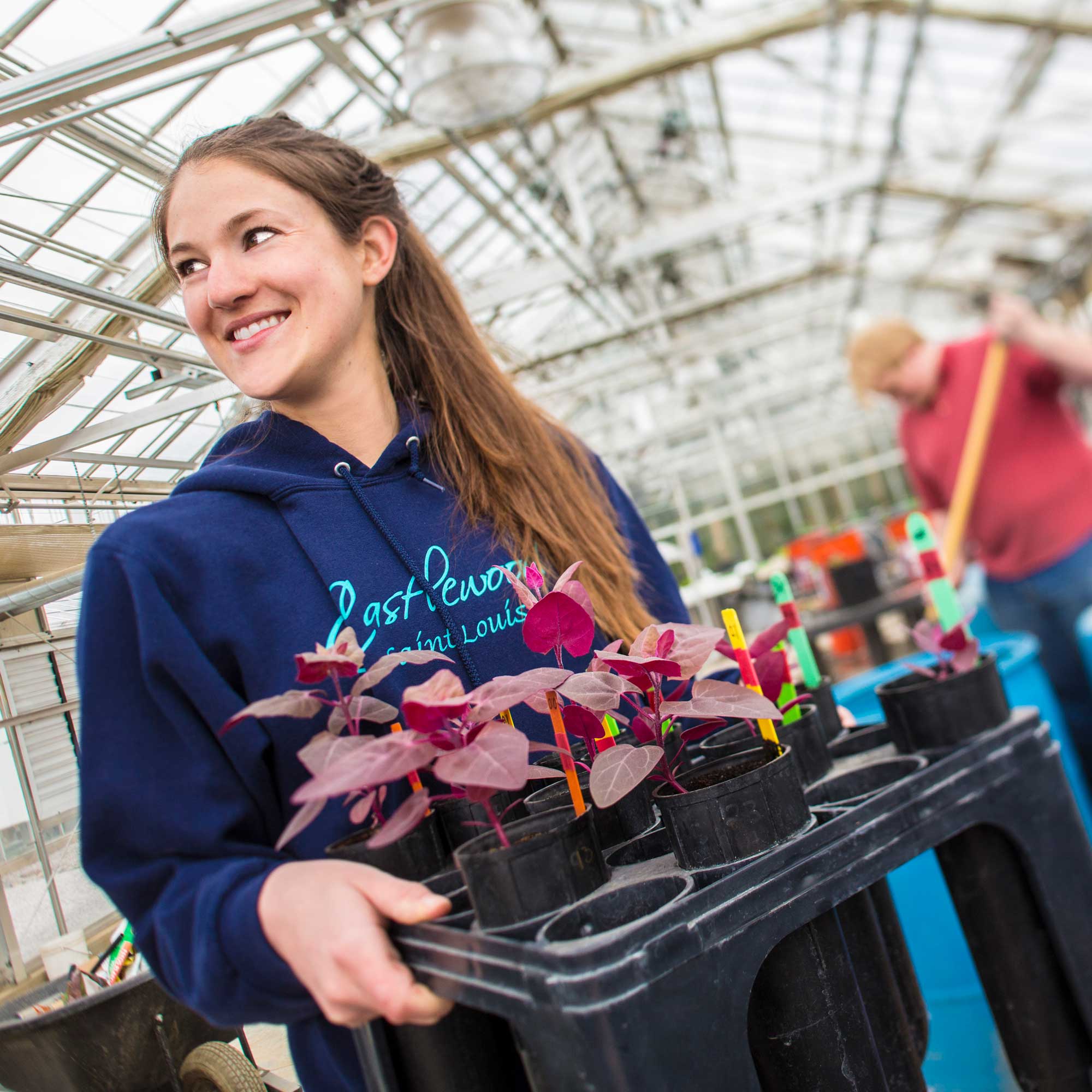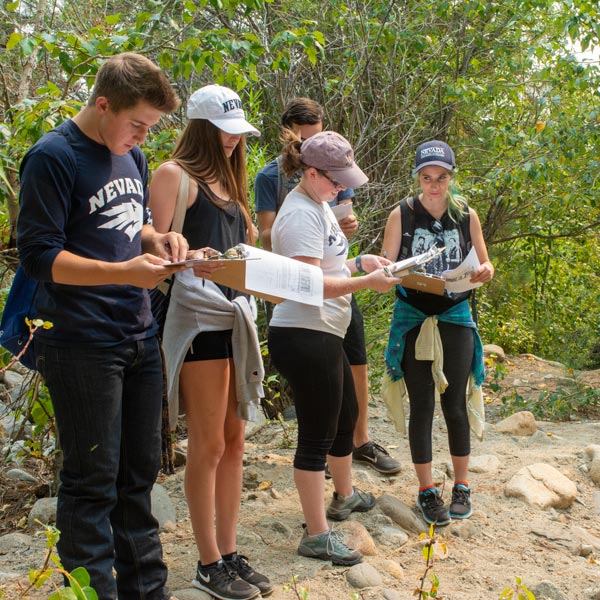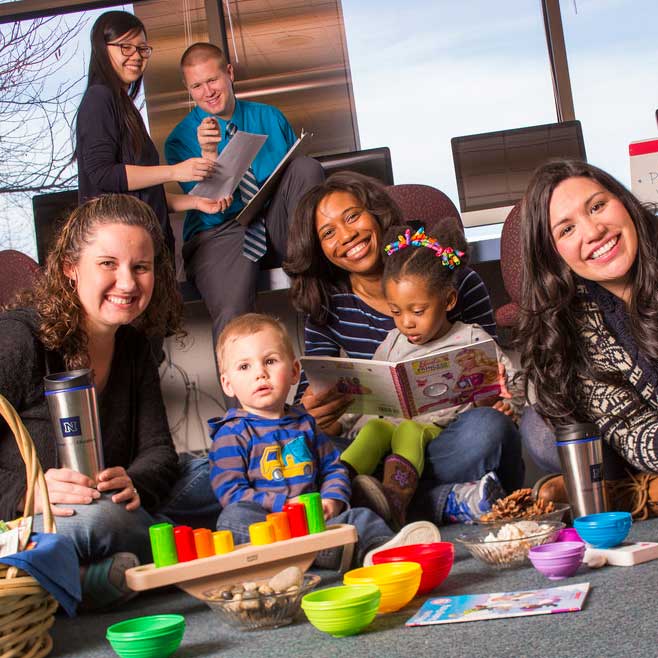In this edition
- Program that leases high-tech tools to environmental scientists wins new funding
- University awarded nearly $1.8M for collaborative research project to study rural perception of climate change
- College researcher collaborates to provide students summer science experience
- College to expand training programs for meat- and poultry-processing industry
- Sagebrushers podcast features Extension Director Jake DeDecker and Associate Professor Sarah Bisbing
- College hosts summer camps for youth across the state
About our College
A founding college of the University, we have a long tradition of excellence in teaching, research and engagement programs that benefit the health and economic vitality of Nevada. We offer programs in:
- agriculture, horticulture, rangeland and veterinary sciences
- biochemistry and molecular biology
- children, youth and families
- community and economic development
- health and nutrition
- natural resources and environmental science
Program that leases high-tech tools to environmental scientists wins new funding
College coordinates program assisting hundreds of scientists around the globe
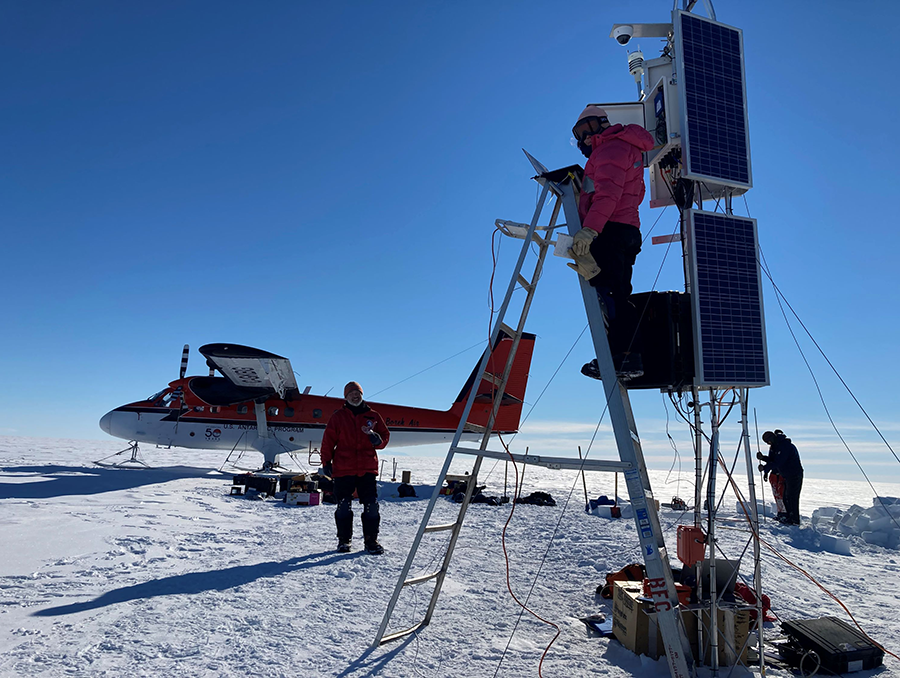
Scientists from the National Snow and Ice Data Center and the Université Grenoble Alpes download ocean temperature data from beneath an ice shelf in Antarctica that provides clues about the rate of ice loss. The team’s work was supported in the field and remotely by the CTEMPs project. Photo by Chris Kratt.
Think of it as earth-science researchers’ high-tech version of a store that rents specialized and expensive equipment to homeowners for weekend projects – and provides helpful tips.
Hundreds of scientists around the nation have relied on the Centers for Transformative Environmental Monitoring Programs (CTEMPs) for access to state-of-the-art instruments for research that stretches from the ice of Antarctica to a creek flowing through the heart of New York City.
Now the program, coordinated by Associate Professor in the College Adrian Harpold, has landed $3 million. The funds will bring more technology, more training and more sponsoring institutions, including the Desert Research Institute.
CTEMPs provides:
- Distributed temperature sensing systems that measure tiny differences in temperature every few inches over miles for hydrologists, glaciologists and atmospheric scientists.
- Distributed geo-acoustic testing that provides highly detailed data about seismic and groundwater processes.
- Advanced drone-mounted sensors that collect airborne datasets for geophysicists and plant scientists.
- Workshops, technical support and a maker space to train and empower the next generation of scientists.
- A good value for taxpayers, public agencies and universities.
“Important work for the future of our planet is undertaken by scientists who partner with CTEMPs,” Harpold said. “Their research provides significant understanding of natural processes that range from the health of mountain streams to the large-scale effects of climate change.”
Advancing exciting research
“This program not only advances science, but allows important research funds to be stretched further. With the renewal of funding from the National Science Foundation, we expect to support a growing number of exciting research projects.” – Associate Professor Adrian Harpold
University awarded nearly $1.8M for collaborative research project to study rural perception of climate change
Project is one of only 11 to receive funds from highly competitive U.S. grant program
Natalie Fry and Ashley Andrews
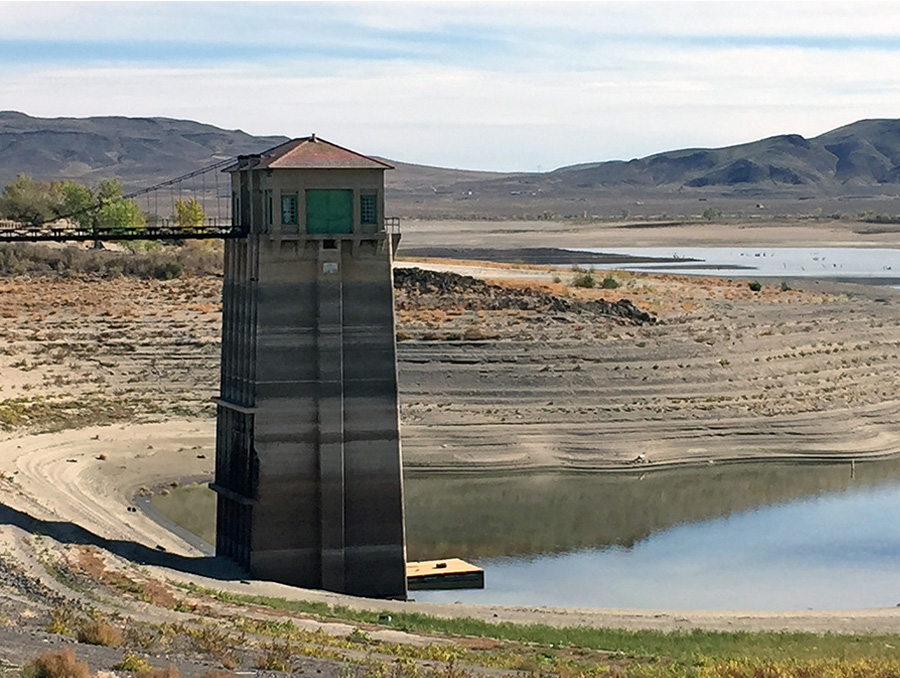
This 2014 photo of the Lahontan Reservoir illustrates the impact consecutive drought years have on Nevada’s water supply. Photo by Loretta Singletary.
Climate change impacts Nevada’s water use on tribal lands and irrigated agriculture, as well as its water quality and wildlife habitat. Rural areas are critical sources of water, food and habitat. As part of a three-state project to address climate change in underserved rural communities, the University will receive nearly $1.8 million of a $6 million National Science Foundation (NSF) award.
The project, “Where We Live: Local and Place Based Adaptation to Climate Change in Underserved Rural Communities,” will advance research, education, workforce development and partnerships among three states experiencing effects from environmental change, such as drought, heat and wildfires. The project will:
- Bring together a number of scientists from Nevada, Idaho and South Carolina, and across academic disciplines.
- Partner with local, state, tribal and federal organizations in rural communities.
- Explore differences in climate change impact perception and adaptation across the country.
“The funding from the NSF on this highly competitive grant will provide us resources to interact with and learn from our many underserved, rural communities in Nevada,” Professor Loretta Singletary said.
Singletary, the University’s principal investigator on the project, is with the College’s Extension unit and the University’s College of Business. She is joined on the project by other University faculty, including Dilek Uz, an assistant professor with the College’s Experiment Station unit and the University’s College of Business.
The project is one of only 11 funded this August by the NSF’s Established Program to Stimulate Competitive Research (EPSCoR) to support research in underfunded areas.
Enhancing climate resilience
“The goal is to enable better adaptation planning and action by exploring how a variety of small changes can enhance climate resilience in these communities that are central to our nation’s sustainability and security.” – Professor Loretta Singletary
College researcher collaborates to provide students summer science experience
Remarkable research boot camp introduces undergraduates to data and biomedical life science
Stephanie Navarro and Ashley Andrews
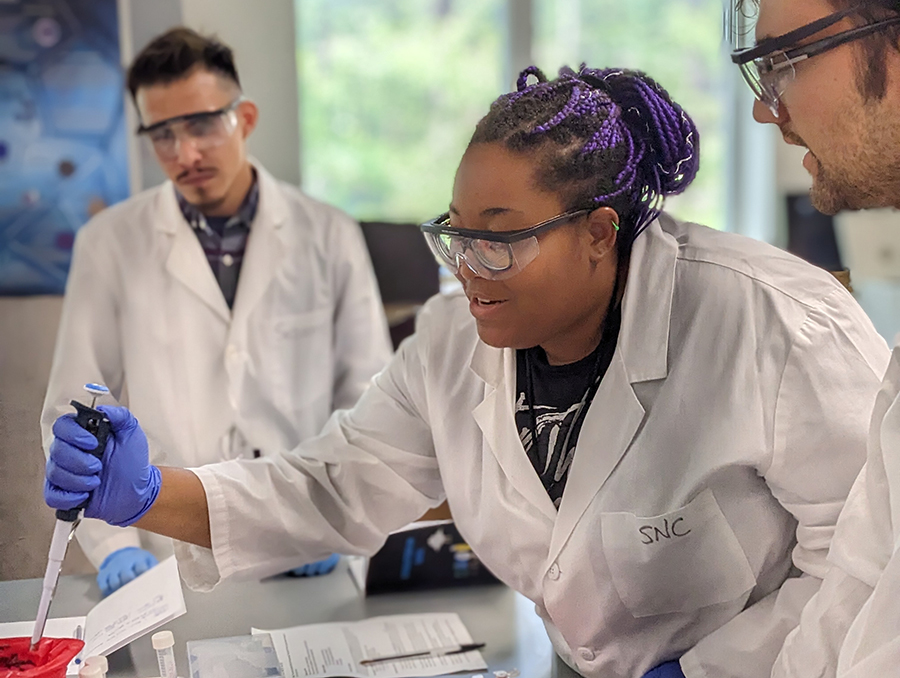
Students from colleges across Nevada, plus a visiting scholar from Montana, participated in the Summer Boot Camp.
Twenty-two students curious about data and biomedical life science gained hands-on research experience this summer at University of Nevada, Reno at Lake Tahoe.
The three-week Undergraduate Summer Boot Camp on Microbiome Research was supported by the Nevada IDeA Network of Biomedical Research Excellence and Nevada Bioinformatics Center. Offered in collaboration with Assistant Professor in the College Steven Frese, the experience introduced participants to dry- and wet-lab science. Students:
- Participated in Frese’s gut microbiome study.
- Prepared samples and extracted DNA for sequencing.
- Analyzed samples using bioinformatics and data science techniques, such as R coding and high-performance computing.
- Presented their findings at a research seminar.
One student said, “The most amazing part was being able to collaborate with the Frese Lab and work with human survey data. It was a new experience for me, and it informed me of the possible issues that can arise when working with real people’s responses and data storage.”
Boot camp participants, who were from University of Nevada, Reno; University of Nevada, Las Vegas; Nevada State College; College of Southern Nevada; and Montana, stayed in the dorms; formed research groups; and enjoyed game nights, hiking trips, night swims and more.
“Science cannot be done by one,” Center Director Juli Petereit said. “Teamwork is an essential part of the boot camp.”
Teaming up to pay it forward
“When Dr. Petereit approached me about supporting the program, I remembered a summer research experience I participated in as an undergraduate. It was fantastic and solidified my choice of career. I saw this as a great way to ‘pay it forward’ for students in Nevada.” – Assistant Professor Steven Frese
College to expand training programs for meat- and poultry-processing industry
USDA funds to boost hands-on opportunities for meat and poultry industry students and workforce
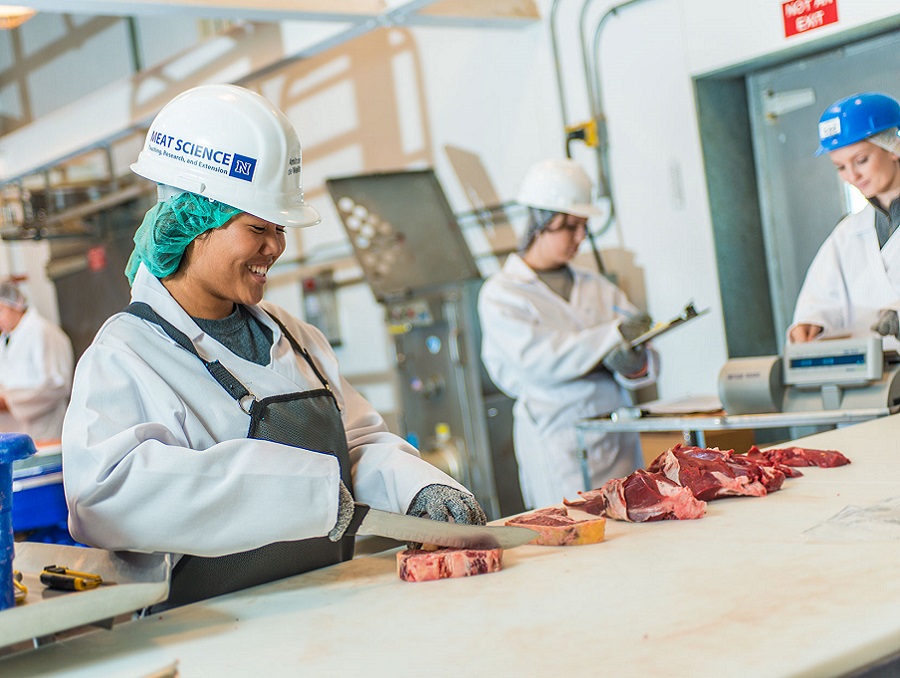
Hands-on training in processing at Wolf Pack Meats is part of a meat and poultry industry education program at the College that recently earned more funding from the USDA. Photo by Robert Moore.
A new grant awarded to our College will enhance its efforts to bring more sustainability to Nevada’s meat and poultry industry by providing more training to people who want to work in this vital supply chain for the nation.
As part of the $650,000 grant and led by Extension Educator Staci Emm, our College’s Nevada Meat Science Workforce Development Program is partnering with Western Nevada College. Through the partnership, students will be able to earn a certificate and apply credits toward an associate degree.
University students may be able to earn a transcript endorsement for credits earned toward the bachelor’s degree they are pursuing. Eventually, high school students will also be able to take classes in the program, and apply those credits towards a college degree.
Credits for the program include hands-on internship work at the University, through our Experiment Station’s Wolf Pack Meats and our Extension’s Mobile Harvest Unit. The goal is to build a pipeline of highly skilled meat-processing workers, while also supporting fair wages and safe workplaces.
Developing a skilled workforce
“Ensuring our food supply is safe and sustainable is incredibly important to our region. We’re proud to work with the University and play a role in developing a skilled workforce for the meat and poultry industry in Nevada.” – Western Nevada College President Kyle Dalpe
Sagebrushers podcast features Extension Director Jake DeDecker and Associate Professor Sarah Bisbing
Tune in to explore the legacy and future of the University’s outreach arm, and work to ensure the future of forests
Episode 10
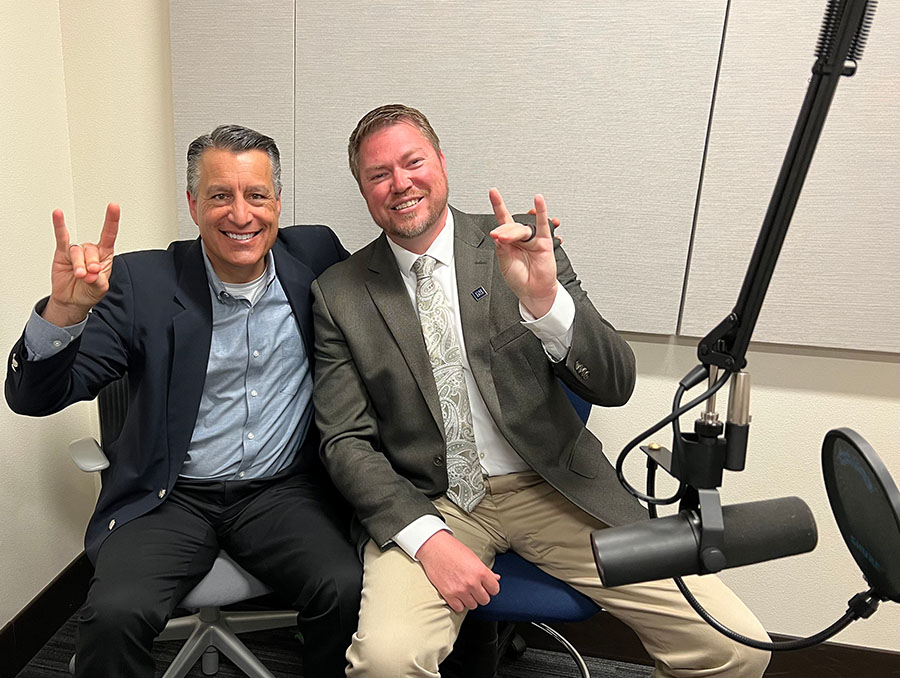
University President Brian Sandoval (left) and Jake DeDecker, the College’s associate dean for engagement and director of Extension, explore:
- Their experiences participating in Extension 4-H Youth Development Programs as children, as well as DeDecker’s farm background.
- The broad-reaching impact of Extension, which is located in all 16 Nevada counties and Carson City, and the unique roles it plays in each community.
- The evolution of Extension, from its agriculture and mechanical arts roots to the depth and breadth of programming it provides today.
Episode 11
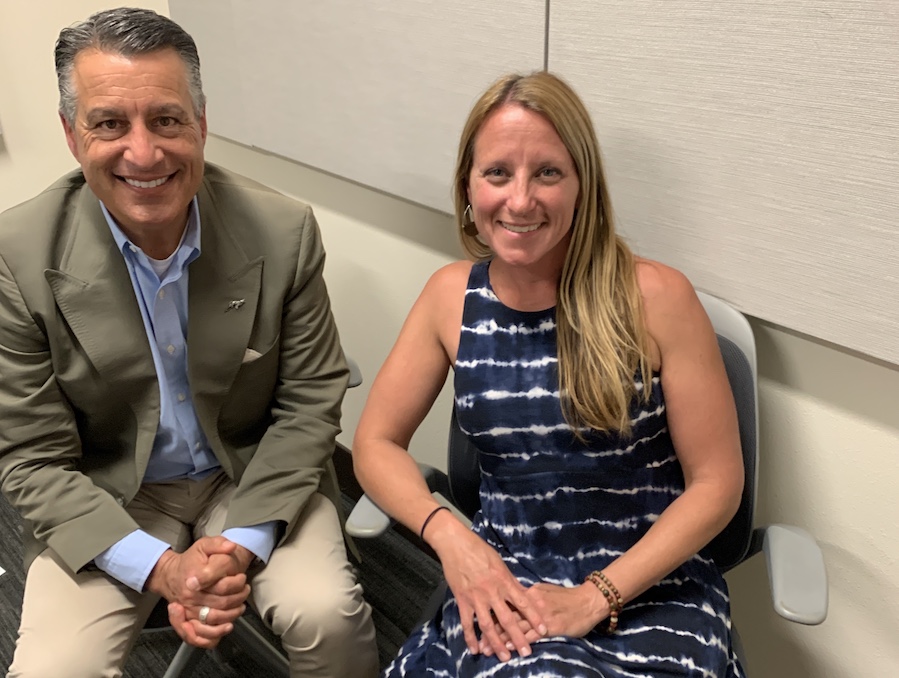
During the episode, Sandoval (left) and Sarah Bisbing, an associate professor in the College’s Department of Natural Resources & Environmental Science, explore her:
- Research, which focuses on ensuring that there are forests in the future, and the biggest threats facing forests.
- Role as director of the University’s Whittell Forest & Wildlife Area, what makes the forest unique and what it means to work in a living laboratory.
- Community partnerships and efforts to recruit and train the next generation of foresters.
Instilling passion in the next generation
“I think one of the greatest impacts and greatest legacies I can have is instilling passion in our next generations, because they have the power to really do some work, more so than I can as a single individual.” - Associate Professor Sarah Bisbing
College hosts summer camps for youth across the state
Programs at Extension’s 4-H Camps in Lake Tahoe and Alamo keep youth engaged and learning, and prepare teens for careers and college
Innovating for Nevada
Our programs work together to make an impact
Our teaching, research and engagement programs are intertwined and complement one another. Faculty who teach on campus also conduct research as part of our Experiment Station, allowing students to learn about and participate in research. Extension faculty engaging with communities identify research needs, as well as join Experiment Station faculty to conduct research. Faculty on campus help to develop Extension programs in communities.
